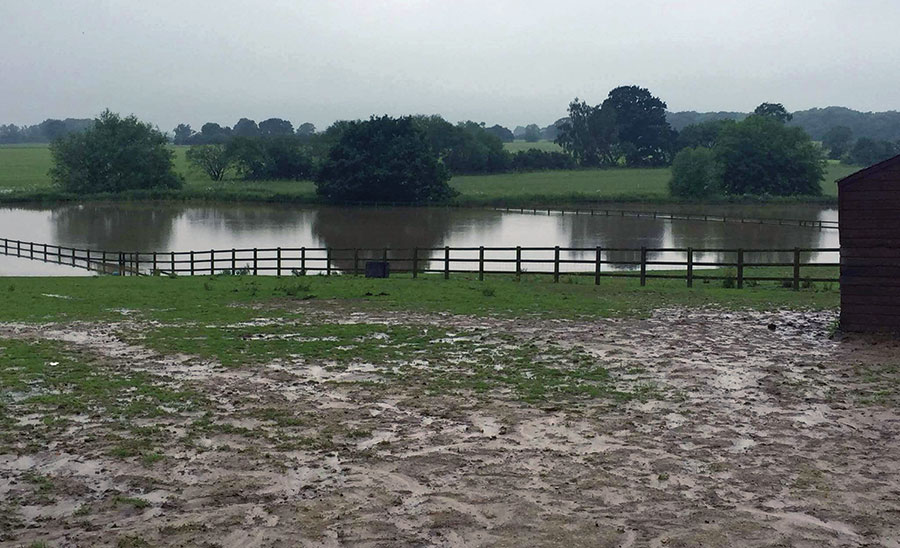
This year has been an extra wet one for most of our country. Some of us have needed it badly and others, not so much. This month I think it is prudent that we discuss some conditions that may become more prevalent this year due to the extra moisture in our environments. If we take some extra steps in care and observation, pests can be minimized, diseases can be prevented, and extra veterinary bills can be avoided.
Flies are a huge nuisance to our livestock. They also can transmit some diseases. With all the added moisture to our environment, we are likely to see an increase in flies. Last year I wrote an article on methods of fly control. I discussed some good control measures including fly sprays, fly bait, feed through fly control and fly predators. If you are not already including these in your husbandry, it may be a good time to evaluate your situation and see if additional measures are warranted. One horse with a bad case of summer sores will definitely make you think twice about neglecting to control flies.
Mosquitoes breed in stagnate water. Flooded areas are prone to have such waters and can be huge breeding grounds for these pests. These pests transmit quite a few diseases, not only to our horses but to many other animals and ourselves also. Make sure to do what you can to eliminate areas of stagnate water. Also, keep up on your horses’ vaccines for mosquito-borne disease such as West Nile Disease, Eastern Equine Encephalitis, and Western Equine Encephalitis. The vaccines for these diseases are extremely efficacious and can save your horse’s life. They are also in the recommended core vaccines for all horses as recommended by the American Association of Equine Practitioners (AAEP).
Proper hoof care can prevent many problems. With the increased moisture comes increased numbers of cases of hoof abscesses, thrush, white line disease, and possibly canker. Keeping your horses properly cleaned out is the first step. Having an area where they can stay dry is the next step. And finally, regular farrier work can not only help detect some of these issues but can also prevent them.
Too much moisture in our horse’s feed can cause many problems. Concentrates can go bad. Thousands of pounds of hay will get moldy and that can cause issues. Be prepared and make sure you have a clean and dry area for feed storage. If you are using hay and break open a bale and it seems extra dusty, it may be mold spores. Be mindful of these things when feeding your horse and you may save yourself a colic call or other problem.
Hopefully all of you have made through the toughest parts of your winters and are enjoying some spring-like weather. As things warm up, more of these issues will pop-up. Be diligent and you can help to keep you friends and athletes at the top of their game. Remember, an ounce of prevention is worth a pound of cure! (Benjamin Franklin)
–Dan
Leave a Comment
All fields must be filled in to leave a message.